~This is a lament in the classic sense, best sung slowly and a cappella. I’m still tweaking the words to this song, begun in my damp notebook on the Jacobite battle line at Culloden. I find the melody properly haunting and while it’s kind of overly-sentimental and cliche, I think that’s OK for a lament.
The battlefield memorial at Culloden is a very different place than, say, Gettsyburg. While there are plenty of tourists, Culloden is not a small town unto itself: no bustling commercial enterprise. There are no t-shirt and knife shops or “Rebel Annie’s House of Pancakes”.
It is not littered with a hundred statues and monuments to fallen heros. Just a few flags, one large stone cairn and the small rock marking “The well of the dead”… and the bracken they had to fight their way through, and the sky and the chilly moors of Scotland. But if you close your eyes and let yourself grow still… the wind in both places sounds just the same.
The title refers to a stanza from a verse I ended up taking out, but really for me is the essence of what the song is about:
We go to famous battle fields, and the questions we ask, and the things we study and the lessons we learn are not the ones we should be learning.
We get the T-shirt, but miss the message to humanity.
Beneath Culloden’s bitter fields,
beneath the soil so poor
among the bones and cannon balls
there lies the truth of war.

Oh mothers, learn this lesson well
and hear the song I sing,
For there never was a shepherd boy
Who won this game of kings.
From Balaclava to Gallipoli,
and from Acre to Flanders field,
‘Neath the rolling green of Gettysburg
lie wounds that won’t be healed.
For in every war that has ever been,
Fools send the brave to die
And we carve their stones and bow our heads,
But too rarely ask them why.
Why generals send our boys to charge
into the mouths of guns,
To be mowed down like summer grass
For a fight that can’t be won.
Oh they sing of glory and honor-
Vow you’ll wear a hero’s name
But for hero, or for cowardly man
The widows weep the same.
.
For a thousand and a thousand years
it has ever been the same
The poor man fights the rich man’s war,
all for the rich man’s gain.
Yet however proud and pure their hearts
And whatever cause so brave,
In the end, the king is on his throne
And the soldier, in his grave.
Across the broad Culloden moor
The thistles are in bloom.
The skylark sings so boldly
From the heather and the broom.
And then the rain comes sweeping down,
Like tears wept from the sky.
Does it lament so for the dead,
Or for fools like you and I?
I am sitting in a departure lounge at Heathrow airport
reading poems about the island of Iona.
In a fortress of granite, glass and chrome,
a crossroads for travelers of the world,
I am thinking of small cottages and the wind-swept bones
of an ancient abbey, tumbling now to graceful, quiet ruin.
Heathrow is a kicked-over ant hill,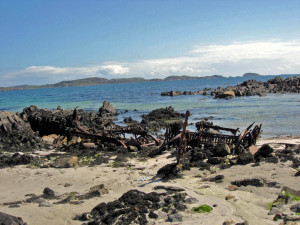
propelled by the chaos of a thousand purposes,
surging waves of departure and arrival.
I miss the relentless, organic motion of sea and wind.
Jets huddle outside in their concrete rookery
painted tail feathers pointing toward the sky they think they own.
But they lack the mastery of the bright oyster catcher
stitching effortlessly above the waves
warning me away from his favorite rock.
I want to go back to the islands
where bright houses cling like limpets above the water line.
I want to wake in the summer morning and sit on a bench
looking out at the sea,
spend days trying just to comprehend the incredible color of water and sky,
to make some sense of the clouds,
and worship the light as it sparks like flint off each wave.
Let me hang my clothes out to be dried by waving grass and skylark’s song.
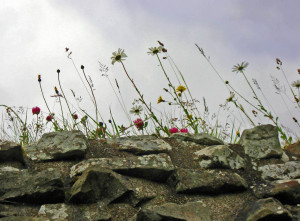 I want to bundle into a thick sweater and walk the narrow road
I want to bundle into a thick sweater and walk the narrow road
that laces between the hills
negotiating my right-of-way with truculent ewes and their sweet-faced lambs.
Let me steal a few minutes in the afternoon to drink tea in the quiet garden
sheltered by stone walls laid 400 years ago
by weathered, deliberate hands.
I will touch the moss and tiny daisies growing in the cracks there,
smile at their patience because I know that, in the end, they will win.
I look up again from my book
as the concourse surges with people in shorts and sandals,
probably returning from some lovely Mediterranean resort.
I do not envy them. Instead
want to feel my cheeks grow pink and rough from the north Atlantic wind.
As time drags on the lounge begins to stir,
simmer like frustrated soup.
People swirl past with their bags of duty-free luxury:
whiskey, perfume and chocolates by the pound
We are buzzing bees longing to leave this hive,
anxious to journey away.
I want to turn back.
to hear the ferry’s warning
as it pulls away for the day’s last trek to the mainland,
escorted by wheeling gulls,
leaving me in the gusty sunshine,
waving goodbye from the shore

Another true yet tragic tale of adventure from the highlands of Scotland.
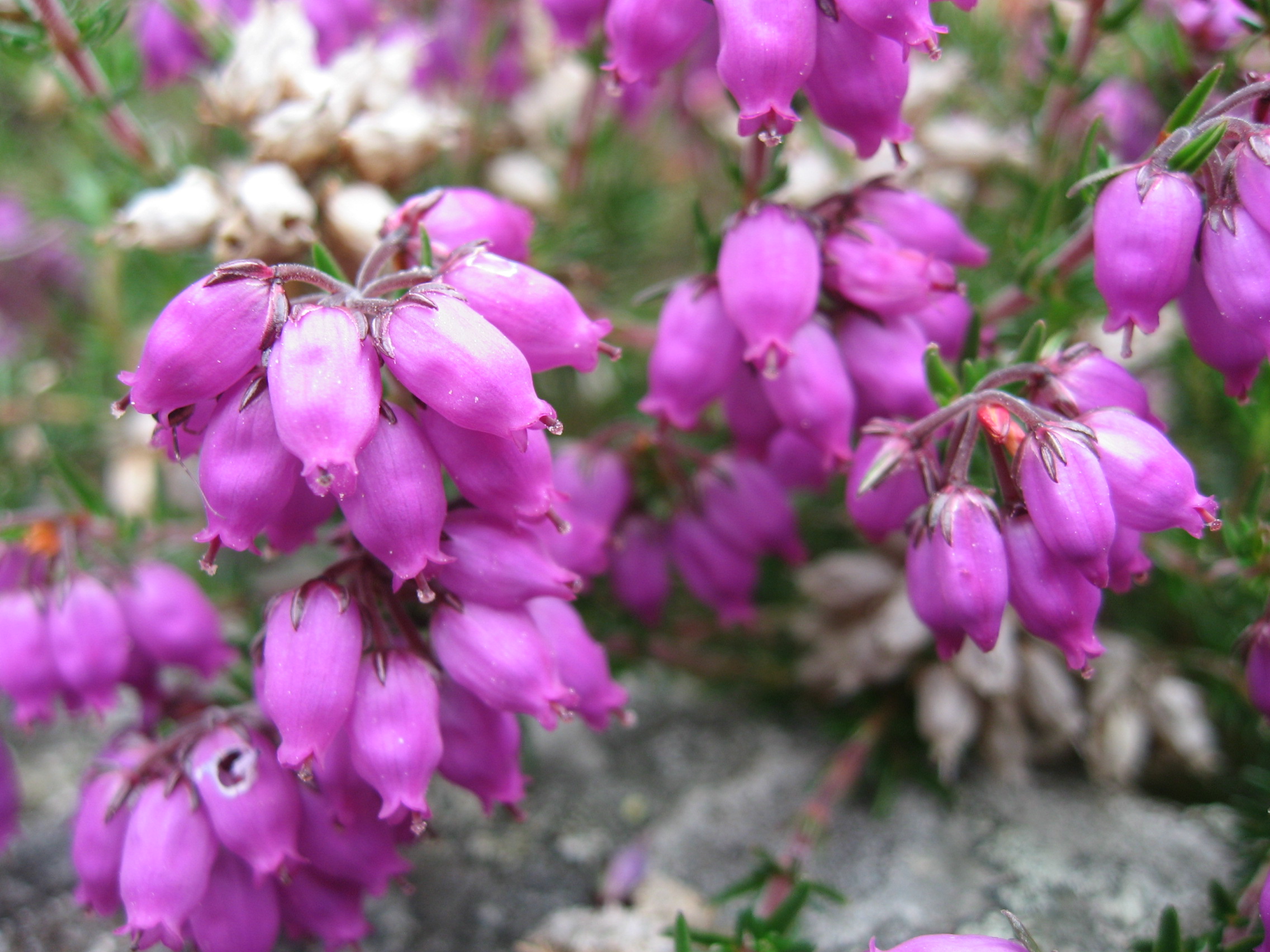
Oh we were traveling towards Dunkeld town
among the purple heather
Sharing songs of old, of adventures bold
in a bit of rainy weather.
Sing hi diddle dee, hi diddle dum,
we came to Scotland to have a little fun
all up the bonny hills and down.
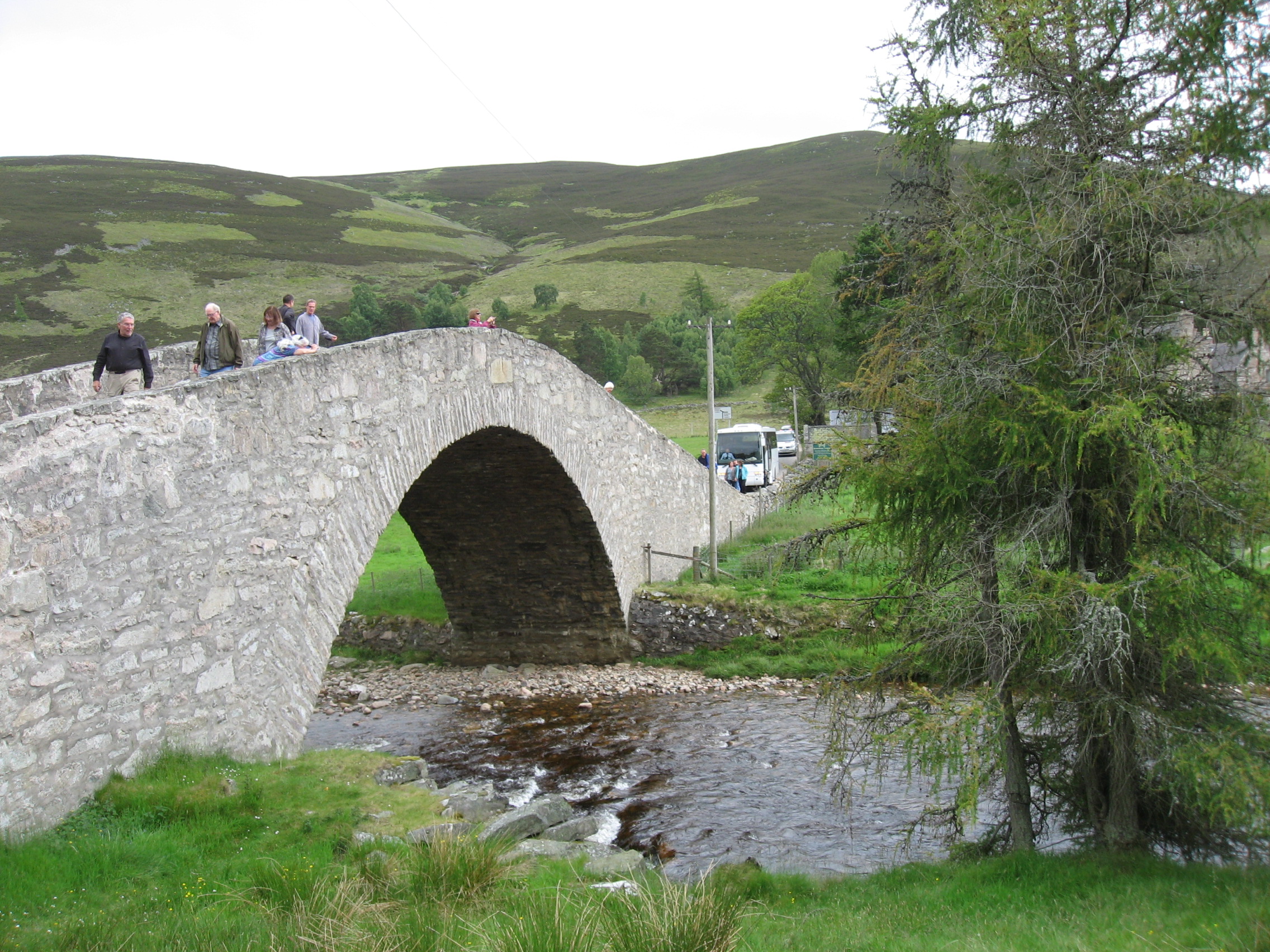
Then came we to the Cairn Gorn bridge
and it was steep and high.
"Alas! Alas!" Jim Malcolm cried
"We'll no reach the other side.
The bus won't fit! We must turn back
'long this winding road that is just a single track"
All up the bonny hills and down.
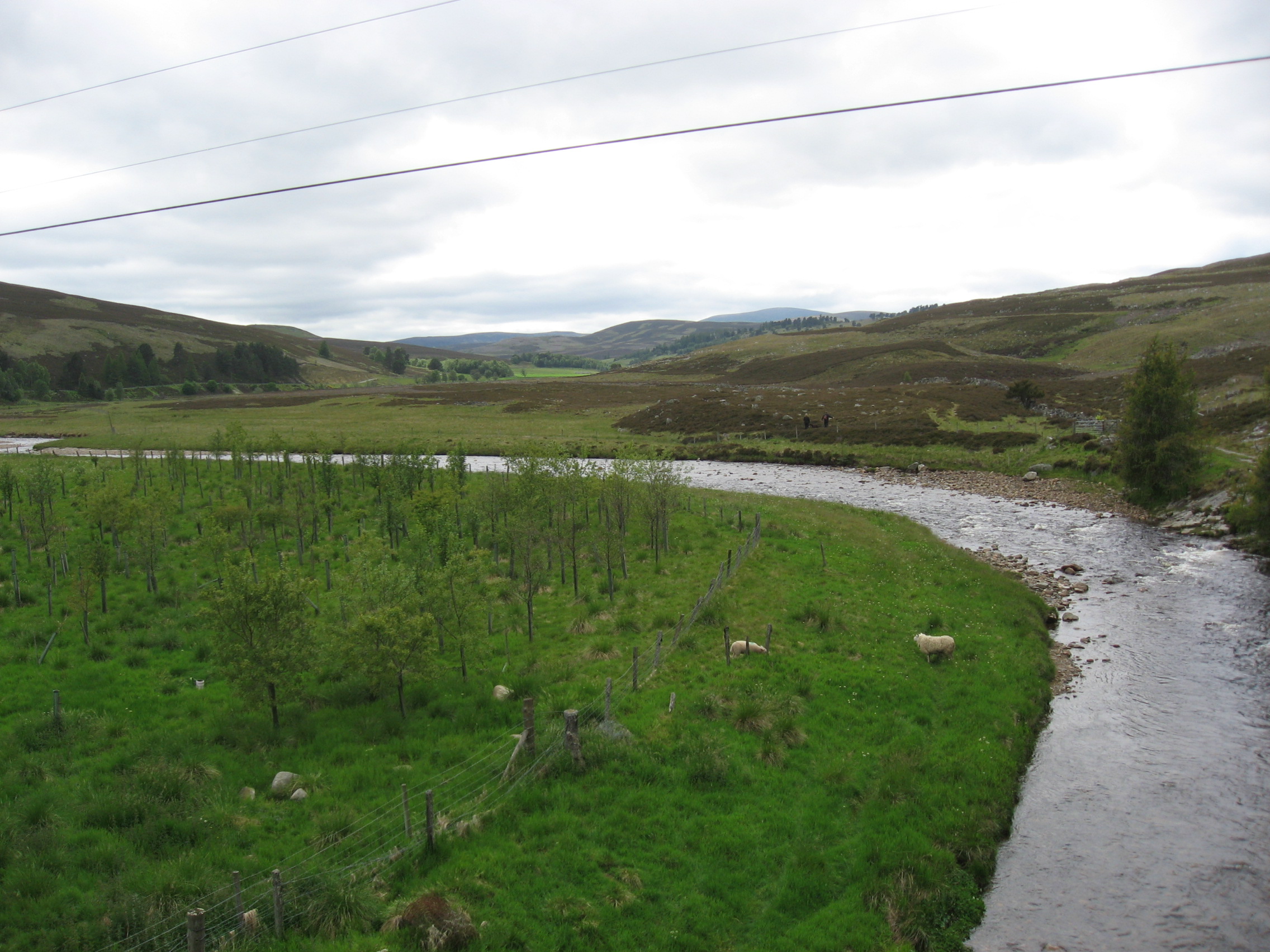
Brave Graeme spoke up, and boldly said
"Wait! I can get us through!
Climb down, climb down to ease the load
and cross your fingers, too!"
With a hi diddle dee, hi diddle die,
I think we're being taken for a little ride
all up the bonny hills and down.
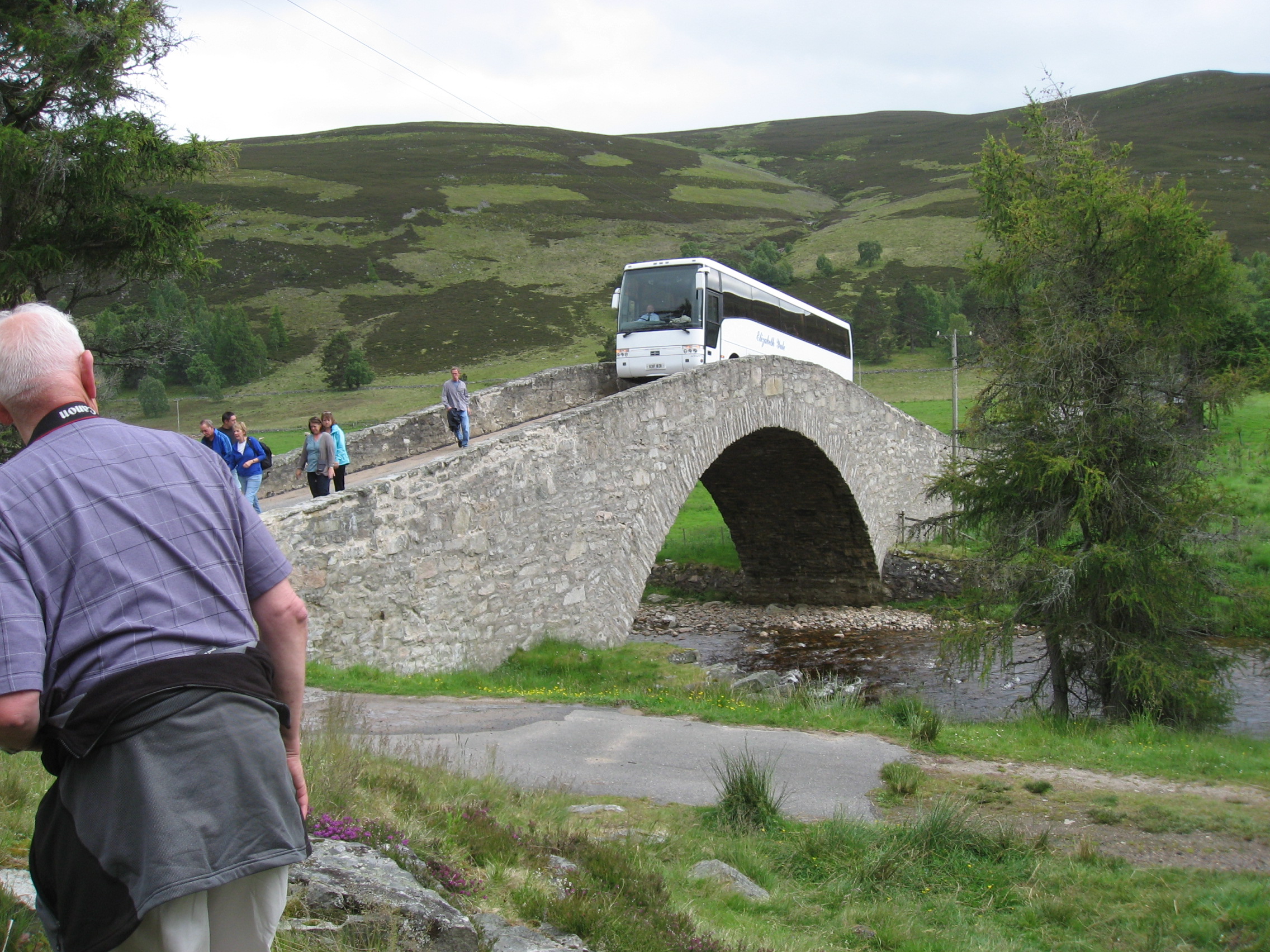 So we stepped high and crossed we ov'er
So we stepped high and crossed we ov'er
and waited anxiously there.
The bus crossed the river, bright and fast
with at least an inch to spare!
Hi diddle dee, hi diddle deg
Jim and Susie Malcolm are pulling on our leg
all up the bonny hills and down.
With happy cheers and loud huzzahs 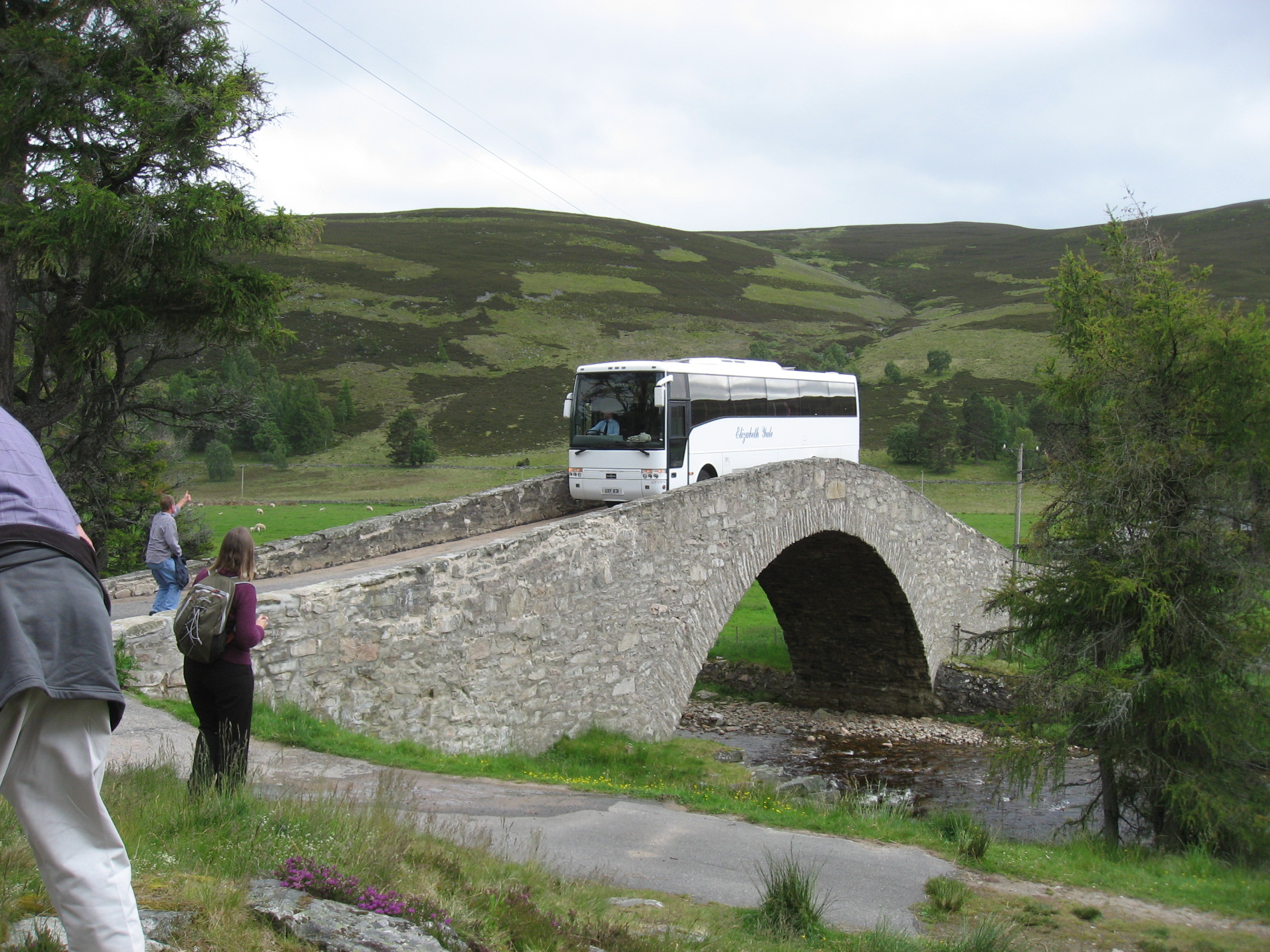
we did greet our victorious driver
and continued on our highland trek
with but a few the wiser.
Oh hi diddle dee, high diddle dez,
don't you believe a word Jim Malcolm says
all up the bonny hills and down.

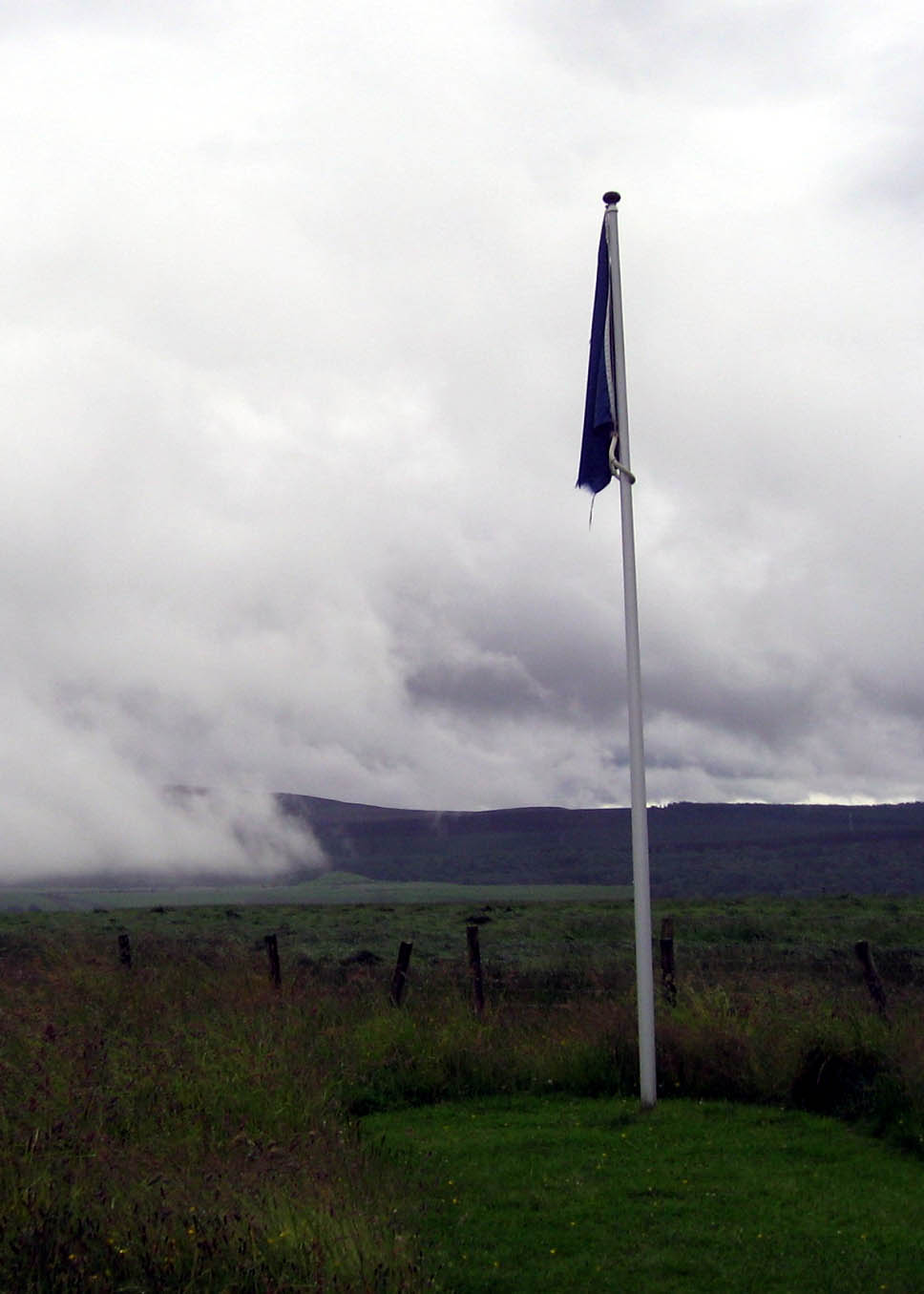




 Tracy Meisky is a poet, writer, singer, songwriter and all-around boat rocker from way back. Feel free to look around, but if you break it, you bought it.
Tracy Meisky is a poet, writer, singer, songwriter and all-around boat rocker from way back. Feel free to look around, but if you break it, you bought it.